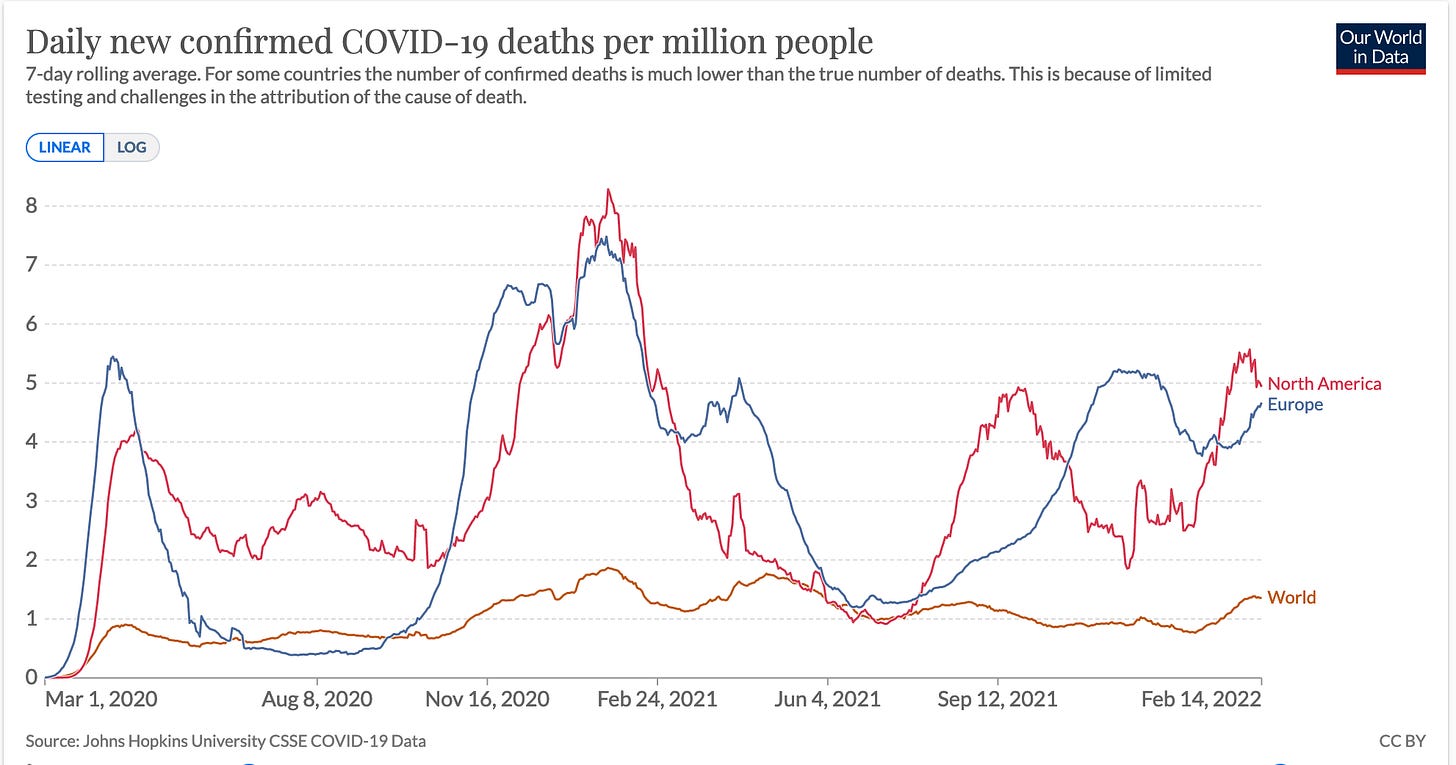As the world convinces itself the pandemic is over, the market convinces itself Russia won’t invade Ukraine
(Originally published Feb. 16 in “What in the World“) The U.S. is warning that Russia remains poised to invade Ukraine, even though Russian President Vladimir Putin has said he is pulling back some troops and seeking a diplomatic solution to the crisis. Washington says it hasn’t been able to verify Russia’s pullback. And even if there has been a redeployment, it may yet be a feint. Indeed, even as Russia suggested this week that Western diplomatic results might not be in vain, it was beefing up forces around Ukraine, moving rocket and missile batteries to the border along with additional troops, naval vessels and combat aircraft.
The escalating tension and potential for Europe to be deprived of its crucial supply of Russian natural gas is roiling markets as it pushes oil’s price higher. One theory gaining currency is one the Ukrainians themselves have touted: that Putin’s buildup is meant to destabilize Ukraine and extract concessions from the West without ever actually invading. In other words, a bluff.
But after its top diplomat, U.S. Secretary of State Antony Blinken, failed to defuse the crisis in Europe, Washington is this week sending its top warrior, Defense Secretary Lloyd J. Austin III to NATO headquarters in Brussels and then to Russia’s Baltic neighbors Latvia and Lithuania. And the U.S. embassy in Kyiv is shutting down and moving west to Lviv near the Polish border. The CIA is following suit.
As more and more governments lift anti-Covid restrictions, scientists warn that the world is suffering from “endemic delusion”—an erroneous belief that the pandemic is abating and we can now “live with the virus.” On the contrary, they warn, reducing infection rates remains key along with preparing for the next variant. Infections are falling, but only from the astronomical highs established at the peak of the Omicron variant’s surge. And deaths, too, are are now falling in some places, but remain well above the pandemic average.

People who still take comfort in because they are momentarily vaccinated and dismiss Omicron as a “mild” disease appear to have forgotten the risk of “long Covid.” Covid may cause long-term damage to vagus nerve, resulting in “long Covid.” This follows another study that found Covid may cause long-term damage to the heart and cardiovascular system, increasing the risk of heart attack and stroke.